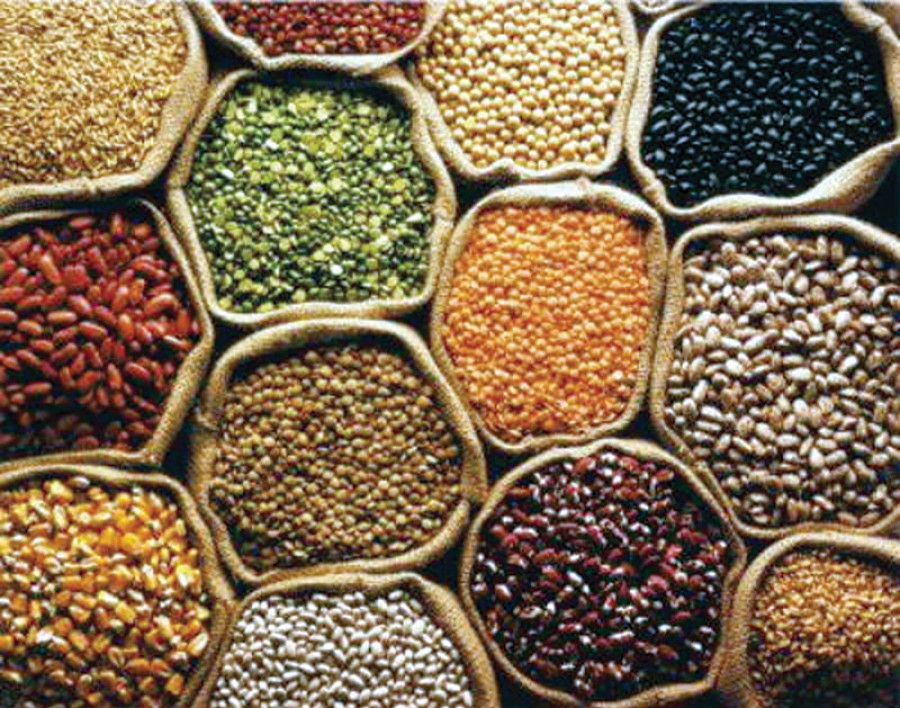Opinion
Don’t waste food
Reducing spoilage is as important as boosting farm output to ensure food security
Arati Joshi
Currently, the world is entangled in a complex web of food insecurity, pollution and climate change. These issues are leading to consequences like hunger, malnutrition, death, conflict and many more. Other trends like an increase in the urban population and shifts in lifestyle and diet patterns of the rising middle class in emerging economies have put considerable pressure on the planet’s resources and biodiversity.
Today, one of the main global challenges is how to ensure food security while ensuring long-term sustainable development. According to the United Nations, the world’s population is expected to reach 10.5 billion by 2050. This translates into 33 percent more mouths to feed. According to the Food and Agriculture Organization (FAO), food production needs to grow by 70 percent to feed this ballooning population.
The food production system is not efficient, especially in Nepal where only 25 percent of the cultivated land has irrigation. Furthermore, most farmers are poor and cannot afford modern inputs, techniques and machinery. This means there is a gap between potential yield and actual yield. The hard work that farmers put in during the crop growing season goes in vain because of inadequate marketing channels and storage facilities. Massive quantities of food, as much as 20-50 percent, are lost due to spoilage and infestation. According to the Postharvest Management Directorate, 15-40 percent of the vegetable harvest is lost en route to market. Similarly, one-third of the world’s food output, or about 1.3 billion tonnes, is lost every year, according to the Food and Agriculture Organization. The loss is higher in the industrialised countries ($680 billion) than in the developing countries ($310 billion).
Agricultural produce undergoes a number of processes between the place of harvest and the retail market, including transportation and storage losses. The minimisation of such losses through different post-harvest technologies helps to increase the availability of food for consumers while increasing profitability for producers. The effort to reduce post-harvest losses is inherently linked to availability and profitability of technologies that can eliminate or reduce losses. On-farm technologies like curing the roots, tubers and bulbs leads to a 2.5-fold higher return. Similarly, cooling practices on vegetables can provide gains 7.5 times higher than the initial cost.
Statistics show that post-harvest management of food is one of the major ways of strengthening food security. Reducing post-harvest losses is of great importance in the effort to combat hunger, raise incomes, improve food security and improve livelihood, in a country like Nepal. Such technologies can contribute to food security in multiple ways by reducing losses, thereby increasing the amount of food available for consumption by farmers and poor rural and urban consumers. Also, using surplus commodities for preparing high value products creates employment (and thus incomes) and better food security in the agricultural sector. Therefore, cutting post-harvest losses clearly complements other efforts to enhance food security through improved productivity.
According to the World Bank, reducing food losses gives the same benefit as growing crops in terms of income. However, according to a popular hypothesis, a 10 percent reduction in loss will save more food than a 10 percent increase in yield. Considering the decreasing contribution of agriculture to the country’s gross domestic production, post-harvest management and value addition of products could significantly increase the share.
Nepal’s budget statement for the fiscal year 2018/19 has allocated a 25 percent subsidy for the acquisition of equipment to establish processing industries operated by cooperatives.
Similarly, the budget has earmarked funds for the construction of storage houses and the establishment of Agriculture Learning Centres at all local levels. If the budget allocation is used wisely by the concerned stakeholders, we will no longer have to hear about apples decaying in Jumla, vegetables turning into compost in Chitwan and milk being spilt on the road.
Joshi is an undegraduate student at the Agriculture and Forestry University, Rampur, Chitwan




 20.12°C Kathmandu
20.12°C Kathmandu










